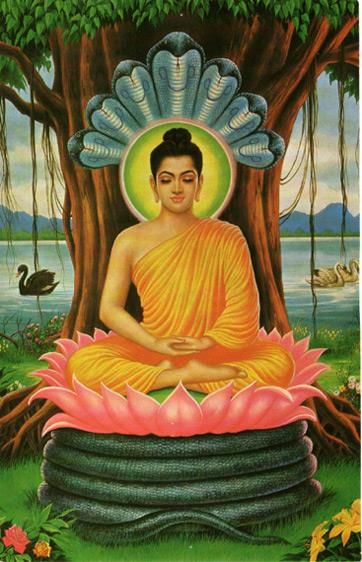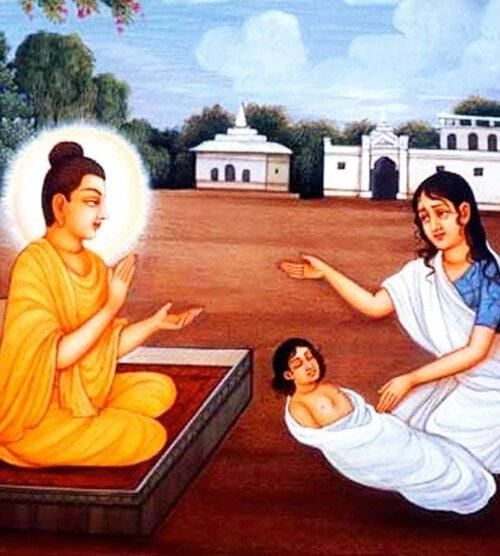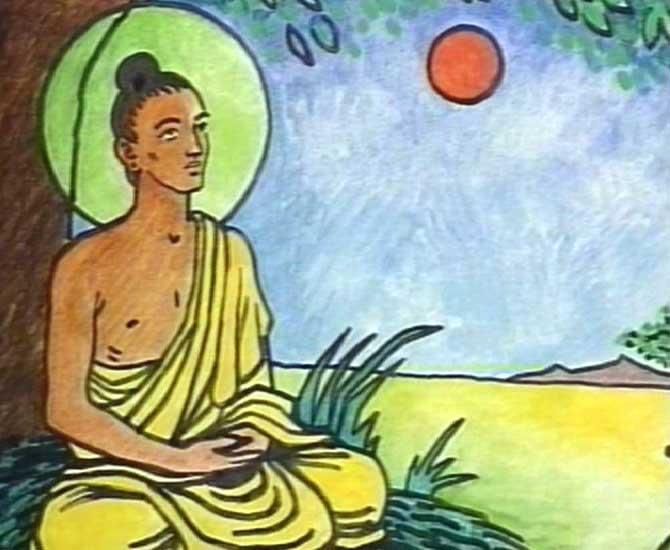|
What significant event in Siddhartha Gautama's life prompted him to seek enlightenment? |
Card: 1 / 26 |
|
Siddhartha Gautama witnessed various forms of human suffering, including an old man, a sick man, a corpse, and a monk begging for alms, which deeply affected him and led him to seek understanding of suffering. |
Card: 2 / 26 |
|
Fill in the blank: Siddhartha Gautama spent ___ years wandering before attaining enlightenment. |
Card: 3 / 26 |
|
He transformed into the Buddha, meaning the Awakened or Enlightened One, and began teaching his newfound wisdom.  |
Card: 6 / 26 |
|
True or False: The first sermon delivered by the Buddha took place in the city of Benares. |
Card: 7 / 26 |
|
Kisa Gotami sought a cure for her dead child and learned a profound lesson from the Buddha about ___ and ___ . |
Card: 9 / 26 |
|
The Buddha asked her to find a handful of mustard seeds from a household that had not experienced the death of a loved one.  |
Card: 12 / 26 |
|
Kisa Gotami's journey for mustard seeds resulted in a realization about ___ and ___. |
Card: 13 / 26 |
 Unlock all Flashcards with EduRev Infinity Plan Starting from @ ₹99 only
|
|
True or False: Kisa Gotami was able to find a household that had never experienced death. |
Card: 15 / 26 |
|
The teachings of the Buddha emphasize the importance of accepting the ___ of life. |
Card: 17 / 26 |
|
She understood that true liberation comes from relinquishing selfish desires and attachments.  |
Card: 20 / 26 |
|
What lesson does Kisa Gotami's story illustrate about the nature of suffering and acceptance? |
Card: 21 / 26 |
|
Kisa Gotami's story emphasizes the universality of suffering, highlighting the importance of accepting the natural cycle of life and death to find inner peace. |
Card: 22 / 26 |
|
The narrative underscores the significance of overcoming ___ desires and embracing the truth of ___ existence. |
Card: 23 / 26 |
|
True or False: The teachings of the Buddha encourage excessive grief as a means to cope with loss. |
Card: 25 / 26 |
|
False; the teachings of the Buddha highlight the futility of excessive grief and promote detachment from worldly sorrows. |
Card: 26 / 26 |























